Organ Transplant Law, Conditions and Fee Situation in Turkey
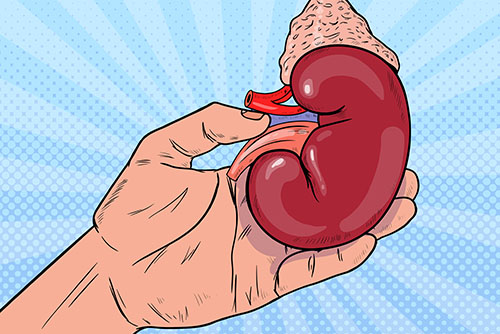
- Organ Transplant Conditions
- Who Is Organ Transplant Performed From?
- Who Can Have Organ Transplantation?
- What are the Conditions for Organ Donation?
- Organ and Tissue Transplantation Law
- Laws Regarding Organ Transplantation
- Abuses Related to Transplantation
- Law No. 2238 on Organ Transplantation
- Organ Transplant from Cadaver
- What is Organ Transplantation from a Cadaver?
- What are the Conditions for Organ Transplantation from a Cadaver?
- What are the Advantages of Organ Transplantation from Cadaver?
- In Which Cases Organ Transplantation From Cadaver Cannot Be Performed?
- Organ Transplant Fees
- Is Organ Transplant Charged?
- Does the State Pay for Organ Transplantation?
- How to Choose an Organ Transplant Center?
- Is There an Age Limit for Organ Transplantation?
Organ Transplant Conditions
As in the rest of the world, important steps are being taken in our country to promote organic transplantation. Today, when tens of thousands of patients are waiting for organ donation, it is aimed to raise the awareness of the society at the point of encouraging organ donation. With organ donation, it is possible to ensure that patients who struggle with the risk of death can hold on to life. There are certain conditions determined by health institutions and relevant government institutions in order to be able to donate organs and to be included in the list/order of organ transplantation. Organ transplant conditionsand patients who comply with the criteria are included in the national and international organ transplant order/list by the Ministry of Health. Thus, in case of harmonious and appropriate organ donation, they can have the right to benefit from organ donation in accordance with the order.
Who Is Organ Transplant Performed From?
It is possible to save human life with organ transplantation. However, in order for organ transplantation to be implemented, the determined organ transplantation conditions must be met. Anyone who meets the conditions for organ transplantation can become an organ donor or benefit from organ donation. The criteria determined for organ transplantation with bilateral conditions aim to prevent problems that may be experienced in this field and to create a more dynamic system.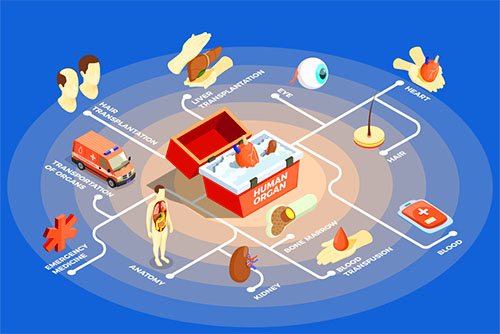
Today, organ transplantation can be performed from a cadaver donor and a living donor. Organ transplantation can be performed from people who have died in accordance with the criteria determined by the Ministry of Health according to international standards, such as cerebral hemorrhage and traffic accidents. In such cases, the person who lost his life should have been allowed to have an organ transplant with his own consent before death or with the permission of his guardians after death. If these conditions are met, it is possible to perform organ transplantation from a cadaver, subject to medical requirements. Conditions for
living donor organ transplantationon the other hand, it has been regulated very sensitively in order not to risk human life. Accordingly, organ transplantation can be performed by the spouse, child and relatives of the patient who will be transplanted. In case of compliance with medical criteria, it is possible to perform organ transplantation by obtaining legal permissions. However, organ transplantation from a living donor is subject to legal restrictions only with liver and kidney.
Who Can Have Organ Transplantation?
Organ transplantation has a very sensitive and legal procedure. For this reason, it should be carried out very sensitively and carefully. Organ transplantation conditions allow taking necessary precautions against the problems and risks that may be encountered in this field. It is vital for organ transplantation, where there is a serious need, that organ transplantation is carried out from really suitable people to those who really need and prioritize it.The process is carried out by authorized institutions in order to ensure that organ transplantation is carried out in a fair, impartial and, of course, safe manner. Accordingly, organ transplantation conditions determined by the relevant health institutions without departing from the medical criteriaIt determines which patient an organ donation will be applied to. Accordingly, in Turkey, as in the rest of the world, the patient to whom an organ donation will be given and which patient has priority are directly carried out by the “National Organ Transplant Coordination Center”. Among the patients included in the "national" organ transplant waiting list created by the organization, donation decisions are made according to criteria such as tissue compatibility rate, blood type, waiting list order and urgency. Organ transplantation conditions
created by this systemThanks to this, it is aimed to create discrimination such as religion, race, gender, social class, which has a serious potential in organ transplants, and to prevent serious risks that may arise. In this context, today, in accordance with the decisions of the Ministry of Health, it is not allowed to share the identity data of donors who donated organs without family permission. If desired, it is ensured that the process is carried out completely in accordance with the principle of confidentiality.
What are the Conditions for Organ Donation?
Organ transplantation conditions have been established in order not to victimize people who want to donate organs and to ensure that their donations are truly effective. The first requirement for people who want to donate organs in Turkey, that is, to be a transplant donor, is to be over the age of 18. If the person who will donate the organ dies, a will must be prepared that includes permission for organ donation in order for his organs to be donated.Apart from the official procedure requirements in question, organ transplant conditions also include medical requirements. Accordingly, there are some organ transplantation conditions determined for the donor and the patient for organ transplantation.
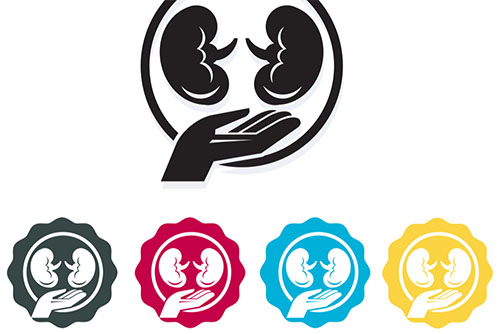
Organ and Tissue Transplantation Law
With organ transplantation procedures becoming medically possible, it has emerged that this issue needs to be addressed both from a vital and ethical and moral point of view. In Turkey, before many other countries, the issue was brought to legal ground and in 1979, it was bound to certain rules through the Organ and Tissue Transplantation Law . However, due to the rapidly changing medical science, developments in organ and tissue transplants require that their legal regulations be adequate and not obstructing this sensitive issue, which is of vital importance.In our country, organ transplantations have been brought to a legal basis with the Law No. 2238 on Removal, Storage, Vaccination and Transplantation of Organs and Tissues. The law was rearranged in 1982 and 2004 according to the conditions of the day. However, according to our country's legal system and law structure, organ donation is defined as a personal right, even with the consent of the person. For this reason, an additional special regulation is required in order to make organ transplantation legal.
Laws Regarding Organ Transplantation
Although the law of organ and tissue transplantation covers the regulation in this area, the fact that the subject is also related to the Turkish Penal Code due to personal rights makes it obligatory to make special regulations regarding each other in different laws. At the same time, it is also important to ensure that sensitive issues such as organ and tissue transplantation are handled within the framework of ethical rules, do not serve commercial purposes, and do not engage in behaviors aimed at meeting organ needs illegally.The fact that the subject is open to abuse, has a direct personal right, and at the same time encourages donations requires that the legal approach be sufficient in all these respects. In addition, thanks to the medical and technical sciences that are constantly and rapidly advancing, developments related to organ transplantation are rapidly changing. In this sense, it is very important that special regulations and laws follow all these developments simultaneously, since even seconds are important during organ transplants.
Even with the consent of the organ donors, it is a common situation that the experts who will perform the transplantation have hesitations between performing the transplantation or not due to the legal uncertainty. The inadequacies in legal regulations cause doctors to approach this issue in a reserved and disciplined way. The risk of facing criminal sanctions naturally causes doctors to take a responsible approach to organ transplants.
Abuses Related to Transplantation
Organ and tissue transplantation law aims to provide organ and tissue donation and transplantation operations on a legal basis. Organ and tissue transplants, which are vital issues, become the most valuable thing in the world, especially for patients and their relatives. Although this point of view is considered normal and even right, this approach may also lead to a change in the perspective of each person with the required organ or tissue. Thus, an unethical situation arises where people with power for different reasons can easily access the organs and tissues of those who are weaker.For these reasons, laws on the protection of everyone's personal rights and the law on organ and tissue transplantation.ethical regulation is required. In this way, all obstacles to organ and tissue transplantation can be placed on a functional legal basis. While the rights of doctors, donors and patients are clearly defined, careful evaluation of the time during the transplant process can be ensured.

Law No. 2238 on Organ Transplantation
The first existence of legal basis in our country, which has come a long way in the organ and tissue transplantation law regarding the transplantation process, has a history that we can be proud of. The law, which has been amended twice according to the changing conditions over time, allows the formation of sufficient legal ground in this field today. On the other hand, the problems in its relationship with other laws also cause some problems in organ transplantation and donation.In this context , making the necessary special arrangements together with the law of organ and tissue transplantation is of unique importance for saving many lives. Ethical and moral discussions need to be concluded as soon as possible in order to establish the necessary legal basis adequately and functionally in all respects.
Organ Transplant from Cadaver
The biggest source of organ transplantation is cadavers. Organ transplantation from a cadaver is one of the basic building blocks of organ donation .creates. Organ transplants that can be made from living donors are limited to certain criteria. However, organs that can be used in organ transplants from living donors are naturally limited. Organs that can be taken from living donors are determined in order not to cause situations that may risk the life of the organ donor and disrupt basic body functions. However, in organ donations from living donors, close relatives up to the fourth degree of the patient to be transplanted can be evaluated. In this case, it causes too many limitations in organ transplantation. On the other hand, the scale is naturally much wider for organs to be realized from cadavers.
What is Organ Transplantation from a Cadaver?
It is possible to perform an organ transplant from a deceased person who is pronounced as a cadaver donor. In this way, it is ensured that one or more people help save their life through the organs of a deceased person. Organ transplantation from a cadaver donor is very common nowadays. In fact, extensive studies are carried out in this regard by both national and international health organizations to encourage people. It is ensured that healthy/usable organs are removed from people who lost their lives by organ transplantation from cadavers , and transplantation is carried out to patients with organ failure.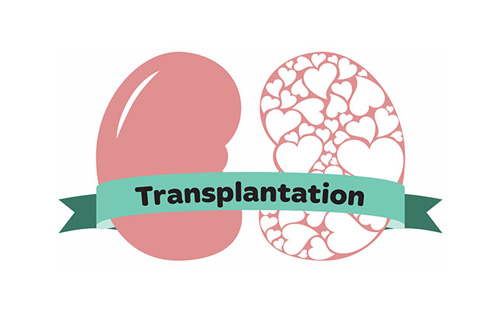
What are the Conditions for Organ Transplantation from a Cadaver?
Today, organ transplantation from a cadaver can be legally performed both medically and in accordance with legal procedures. Organ or tissue can be obtained from people who have died, for patients who need organs. In this way, it can be ensured that a person who lost his life can help save the life of one or more people or move his life to better conditions. However, certain conditions have been determined in accordance with both medical and legal procedures in order to perform organ transplantation from a cadaver. These conditions are;
- In order for an organ transplant to be performed, the person must be “brain dead” in the intensive care unit. Based on this situation, a board decision should be announced by a board of experts.
- The cadaver donor should not have any chronic diseases/infectious diseases (for example, diabetes, infectious diseases and cancer).
- The cadaver donor should have a statement that he wants to be an organ donor while he is alive. In addition, even if there is a statement belonging to the person, the legal guardian(s) must give consent for the organ transplantation in accordance with the legal conditions.
What are the Advantages of Organ Transplantation from Cadaver?
Organ transplantation from cadaver , which is widely performed today , has very important advantages over organ transplantations from living donors. Among these advantages, there is primarily a greater variety of organs that can be used. Especially since there is no such thing as the vital functions of the person who lost his life, it is possible to use even the most vital organs in transplantation. In this context, cadaveric donors are a very important advantage in the transplantation of organs such as heart, heart valve and cornea, which are medically impossible to obtain from living donors.
In Which Cases Organ Transplantation From Cadaver Cannot Be Performed?
All details are regulated by legal procedure in order to avoid any victimization regarding organ transplantation and to realize a completely fair transplantation management. In this context , all conditions for organ transplantation from cadavers have been determined beforehand. It is also clearly stated in which cases organ transplantation cannot be performed, as well as organ transplantation from a cadaver donor.For organ transplantation from a cadaver donor, the body of the person who will receive an organ should be medically evaluated as a cadaver. For this, the person must not be connected to a respirator and must be brain dead. In other words, it is necessary to officially register that the person died completely scientifically and medically.
It is not possible for every cadaver to be used as a donor. There are many variables, such as the cause of death of the person, the condition of the person's organs. One of the obstacles to organ transplantation from a cadaver is chronic diseases and infectious diseases of the person. In such cases, it is not possible for the person's organs to be suitable for transplantation. Organ transplants from these people, that is, donors with these characteristics, may pose serious risks even in terms of public health, especially the health of the transplanted person.
Organ Transplant Fees
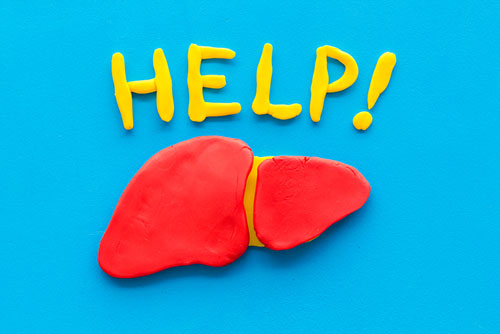
What it brings to the human spirit by having a share in an extremely important phenomenon such as saving human life is invaluable. There are many people in the world who face organ failure or loss of organ function due to incurable diseases. These patients, who are waiting for a new organ, can hold on to life thanks to organ donors. However, the fact that the level of organ donation has not yet been reached, both in our country and in the world, creates serious problems. For this reason, important incentive activities are held in order for people to show a more sensitive approach to organ donation. The fact that concepts such as organ donation or organ transplantation are frequently included in our lives, organ transplant fees of people in need in this regard.It also raises his interest in the subject.
Is Organ Transplant Charged?
Today, there is no full awareness of organ transplantation in the general population. The fact that many people do not have enough information about being a donor, organ donation and organ transplant procedure causes extremely serious situations such as the death of people. One of the most basic issues to know about organ transplantation is the remuneration policy. The most basic thing to know about organ transplant fees is that the organs to be transplanted are not paid.In today's Turkey and even internationally, organ donation by an organ donor for a certain fee is an absolutely illegal act. Because under no circumstances is there a charge for the donor organ donated by the organ donor. Therefore, there is no charge for the organ to be transplanted from patients who need organ transplantation. What is considered as an organ transplant fee is actually the fees applied for the surgical operation to be performed.
Does the State Pay for Organ Transplantation?
Organ transplantation in Turkey is covered by the state. All details of the organ transplant procedure carried out by the Ministry of Health are regulated by law. All health institutions, donors and patients and their relatives must comply with these legal regulations. Organ transplantation fees are currently covered by the Ministry of Health in Turkey. It is covered by the Social Security Institution (SGK). In other words, organ transplantation is covered by insurance.In case of organ transplantation by the health institutions that have a protocol with the Ministry of Health in Turkey and hold the license of "organ transplantation center", the fee is covered by the insurance. In this context, it is not possible for the relevant health institutions to display an approach such as an additional fee/additional fee request for the patient regarding organ, tissue or stem cell transplants in our country. Such approaches are illegal and strictly subject to sanctions. Because, organ transplantation applications are evaluated in the category of service applications where no additional fee can be charged directly according to the law.

How to Choose an Organ Transplant Center?
Today, there are organ transplant centers licensed by the Ministry of Health. It is possible to benefit from organ transplantation services through these centers, with the costs of organ transplantation covered by the state. There can be only one center in Turkey where patients can agree on the realization of organ transplantation. This means that only one center can apply. However, the patient has the right to change the organ transplant center in the future.Since organ transplantation is an extremely vital phenomenon, care must be taken to ensure that the chosen organ transplantation center is reliable, experienced and of high quality. It is of great importance that the health institution is fully equipped in terms of both medical and physical conditions. In case of any complication, it should have the competence to perform the emergency response in the health institution.
Is There an Age Limit for Organ Transplantation?
In Turkey, there is neither a minimum nor an upper limit for age for patients who need organ transplantation in accordance with international standards. It is possible to carry out organ transplantation to all patients who meet the criteria, without any age restriction, with organ transplantation fees covered by the state. However, it should not be forgotten that medical criteria are taken into account regarding the patient's suitability for organ transplantation. Because today, there is a huge difference between the number of patients in need of organ transplantation on a global scale and the number of donors who donate organs. In this case, the number of donated organs is very insufficient and this type of very strict criteria and evaluations are applied.For detailed information about Organ, Kidney and Liver Transplantation in Turkey please click here >>
For detailed information about Organ Transplant Status, Types and Processes in Turkey please click here >>
Ceyhun kurt
13/04/2024 19:15
Organ bağışı yapanın hiç değeri yok mu yani ölene kadar nelerden faydanalacak
In accordance with Article 10 of the Personal Data Protection Law (PDPL,KVKK) titled Data Controller's Obligation to Disclose, we use cookies in accordance with the legislation, limited to the purposes specified in the privacy policy.

